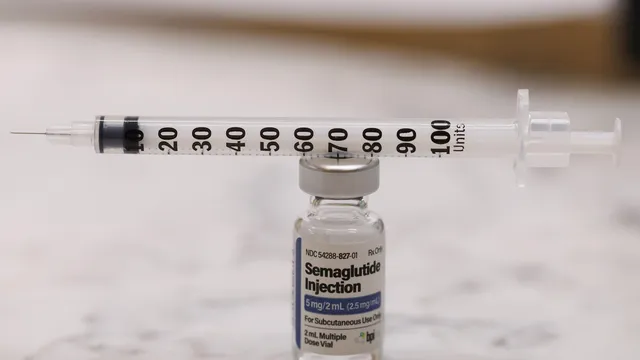A study into the potential serious side effects of weight loss injections has been launched after hundreds of people reported pancreatic problems, the BBC reported.
The Medicines and Healthcare products Regulatory Agency (MHRA) and Genomics England have urged people taking weight loss drugs who have been hospitalized with acute pancreatitis to contact them.
There have been hundreds of reports of acute and chronic pancreatitis from people who have taken drugs such as Mounjaro, Ozempic, and Wegovy, although none of the cases have been confirmed as being caused by the drugs.
The aim is "to better anticipate people who are most at risk of adverse reactions," said Dr. Alison Cave, chief executive of the MHRA.
The study is being conducted through the MHRA's Yellow Card scheme, which allows anyone to report a problem with a medicine, vaccine, or medical device so that safety issues can be identified as early as possible.
Patients over the age of 18 who have had an adverse reaction to weight loss injections – which are also approved for the treatment of type 2 diabetes – are being asked to provide detailed information on the Yellow Card website.
They will then be asked if they are willing to participate in a study that will investigate whether some people are at higher genetic risk of acute pancreatitis when taking these medicines.
Patients will be asked to provide more information and a saliva sample with the overall aim of reducing the occurrence of side effects in the future, the MHRA said.
Cases reported on the Yellow Card website up to May 13 this year include 10 in which patients who had taken weight loss drugs died from the effects of pancreatitis, but it is unclear whether other factors played a role.
It is impossible to know exactly how many people in the UK are taking weight loss drugs, as many consumers obtain them online from unregulated sources rather than from their doctors.
Health authorities suggest that vaccines could help reverse the trend towards obesity.
However, they caution that the drugs are not a panacea and often have side effects such as nausea, constipation, and diarrhea.
The MHRA also warns that Mounjaro may reduce the effectiveness of oral contraceptives in some patients.
Dr. Alison Cave, chief executive of the MHRA, commented that the information from the study "will help us better predict who is most at risk of adverse reactions, enabling patients in the UK to receive the safest medicines for them based on their genetic makeup."
She added that evidence shows that almost a third of adverse drug reactions could be prevented with genetic testing.
"It is estimated that adverse drug reactions could cost the National Health Service (NHS) over £2.2 billion a year in hospital treatment alone," she added.
Prof. Matt Brown, Chief Scientific Officer at Genomics England, said: "GLP-1 drugs such as Ozempic and Wegovy are in the spotlight, but like all medicines, they can carry a risk of serious adverse reactions.
We believe there is real potential to minimise these reactions, as many adverse reactions have a genetic cause."
He said the next step would be to "gather data and evidence for safer and more effective treatment through a more personalized approach to prescribing medicines, supporting the transition to an increasingly preventive healthcare system." |BGNES

 Breaking news
Breaking news
 Europe
Europe
 Bulgaria
Bulgaria







